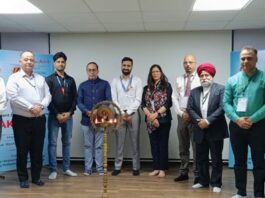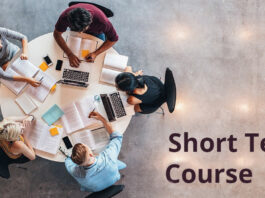“Not all the people you see in the protests are there out of their own choice, most are there because they are afraid, not of the army or being a part of India, but of being killed by their own people.”
“Yet another mundane day”, I thought to myself as I sipped on my cup of coffee while flicking through random Facebook posts on my phone. Just then the music playing in the café was interrupted by a voice, “May I take this seat?” I looked up nonchalantly to see a boy I had never seen before. Simply out of courtesy, I agreed to unwillingly have this stranger sit by me. I looked at him, and he looked to be in a state of discomfort too, maybe he too was feeling weird, so I decided to break the ice, and started a conversation. After greetings were exchanged and small talk made, he seemed to open up to me, and we started talking more comfortably.
He was a greenhorn to the University, and was waiting for his parents who had gone to get some documentation done. Then he told me about a disturbing presumption he made when I coldly let him sit by me. “I thought you realized where I am from, and so you didn’t want me to be here. You see, Kashmiri people are now used to it.” I was shocked at this statement, and told him that where he came from had nothing to do with anything, and my lack of warmth had been only due to the fact that he was unknown to me, at which he smiled but didn’t seem convinced. But by now he had my interest, and I just couldn’t stop myself. I had been reading contradictory statements regarding the Kashmir issue all over social media, the intellectuals to the laymen, everyone had voiced their rather biased views on the topic, and it was time I asked a person coming from the very region his unadulterated, unedited view. I didn’t know how to start the discussion though, so I decided to be forthright, “Can you tell me your take on the issue that surrounds your entire state?” I asked.
He looked up at me, and smiled as if he knew I was going to ask that very question, and then answered in unnerving words, “Sure, but I am pretty sure my answer won’t be what you want to hear, only what you need to know.” Perplexed, I asked what he meant by that statement. “You want to know if I have lost any near and dear ones in the recent clashes, you want to know if Burhan was a messiah or the embodiment of evil, you want to know if we hoist Pakistani flags in our courtyards, you want to know whether I join the mob in pelting stones at the army, you want to know what guns we keep hidden in our attic, but what you really need to know is how we survive day after day, how there is a dichotomy of beliefs among the people, and how it feels for us to be branded traitors and terrorists all over the country.”
I knew at that exact moment that I had finally found the right person to discuss this issue. “Believe me, I have a very neutral stance on whatever is happening in Kashmir right now, and I want to know your view because you can give me the truth, something all the noise on the issue has been very eloquently hiding, that’s all. And what you just said doesn’t matter to me more than what you said I need to know,” I said as I looked directly at him. He wasn’t really convinced, but he changed his tone nevertheless, “People say that the war is between India and Kashmir only, but what they always forget is that there is a war between Kashmir and Kashmir at the same time. The war of beliefs and ideologies, the war of partly right and the other partly right. Believe me, the people of Kashmir are fighting for a dream, the dream that Kashmir will be at peace again, but what they often forget is that however grand it may sound, it is still a dream. There are many people like us in Srinagar, who believe that if Kashmir is emancipated from India, it will only spell doom. We would rather be bullied by the ocassional soldier, than turn into bait for the neighbouring countries, to become the next Valhalla. But as the media would have it, we are tainted in the same colour. Traitors, terrorists, and what not? At every public place, we are only looked down upon, and that hurts us, angers us, and we when we are made to feel like foreigners in our own country we do sometimes wish that Kashmir wasn’t India, but I don’t know whose fault that is. The army? The administration? The people? I don’t know.”
“Separatists come in propaganda cars and ask us to rise up against the forgotten promise, rise up against the slaughter of our close ones, rise up for a free Kashmir every few days, promising to lead Kashmir whenever the need be. My father asks us to pay no heed to them, and is therefore often threatened by them, told that he must join the rebellious force, or he must perish with his entire family. Not all the people you see in the protests are there out of their own choice, most are there because they are afraid, not of the army or being a part of India, but of being killed by their own people. Let me tell you, whenever there is a mass protest, and the army retaliates in defence and people die, the so called leader’s name never show up on the list of dead people. We are tired, of washing the blood off our own porch, of waking up to the sound of an explosion, of hearing gunshots for lullabies, and of being segregated as unwanted.” he finished in that same, dispassionate tone.
Just then his parents came looking for him, and he left without a word of goodbye. I sat reeling for a few minutes from all that I had heard. In a daze I saw him point me out to his parents from a distance and depart. When I came to, my coffee had run cold.




